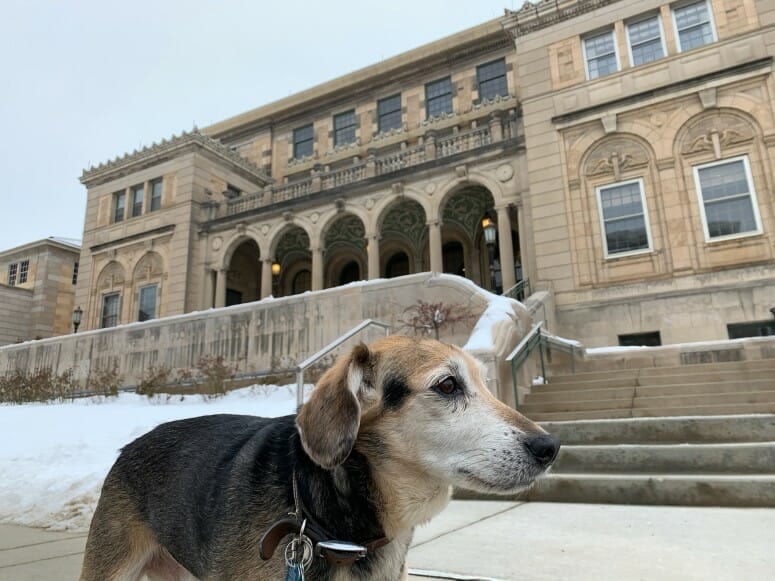24 Mar Veteran finds hope for her dog, others, in melanoma treatment study

Chester, a 12-year-old beagle mix, is enrolled in a study funded by the Department of Veterans Affairs to evaluate a novel immunotherapy in dogs with melanoma. The study funds the canine clinical trials at UW Veterinary Care. PHOTO COURTESY OF BRITTNEY MAEHL
When Brittney Maehl, a veteran of the Navy, learned of the opportunity to help her dog Chester – and other cancer patients – through a clinical trial funded by the Department of Veterans Affairs, she was beyond excited.
“I thought I was counting down hours left with my lovely boy, but after our initial biopsy and exam at the vet school, I left with so much hope,” she recalls.
Chester, a 12-year-old beagle mix, was diagnosed with malignant melanoma in December 2020. As Maehl, a Fox Cities native, searched for answers and treatment options, she arrived at UW Veterinary Care at the recommendation of her local veterinarian.
There, she learned of a study funded by the Department of Veterans Affairs (VA), which aims to treat canine melanoma with a new immunotherapy treatment and inform future human clinical trials.
“When I heard Chester was eligible for the Veterans Administration clinical trial, I broke into tears,” Maehl says. “Being a veteran, it meant so much more.”
The VA-funded melanoma study involves two different treatment modalities. First, patients receive radiation therapy, which aids the immune system in recognizing the tumor as abnormal. Following this, patients get three injections of an immune stimulant called an immunocytokine. These injections consist of an antibody, which locates and targets tumor cells, and a cytokine (small proteins involved in cell signaling) called IL-2, which stimulates a positive immune response.



